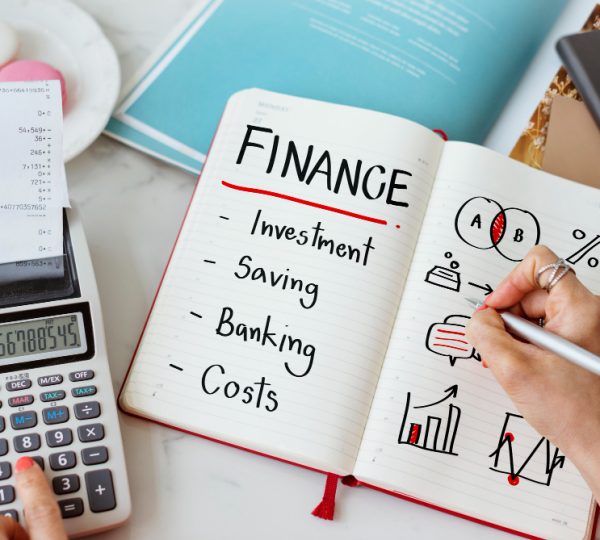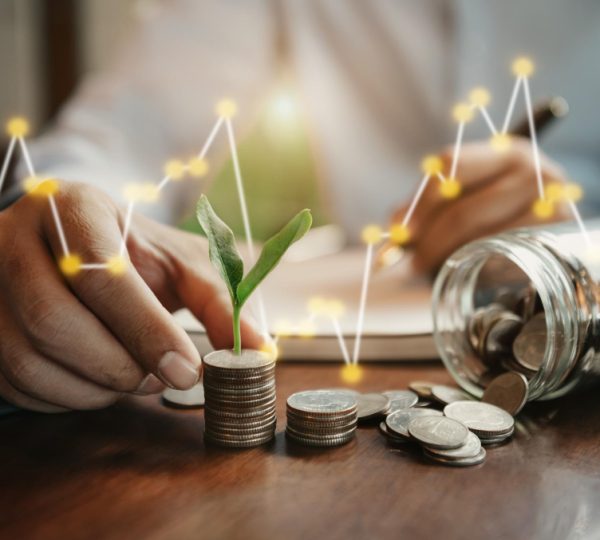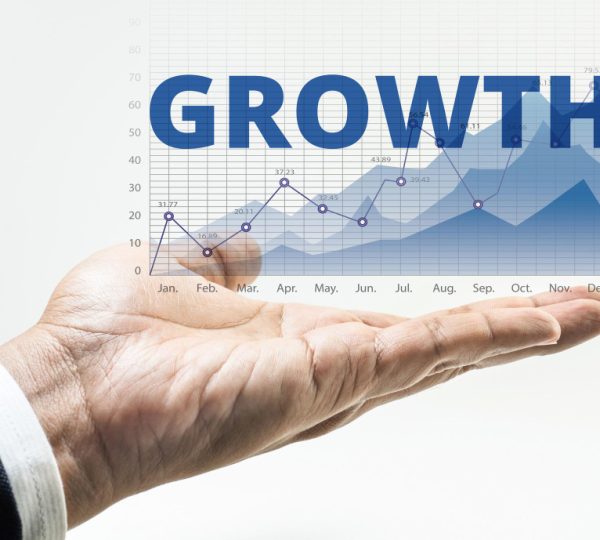Best Investments For Future
The majority of individuals must invest if they want to enjoy a secure financial future. However, as the coronavirus outbreak demonstrated, an economic that first seems to be stable may abruptly turn on its head, leaving those who weren’t ready for bad times scrambling for money.What are the finest investments that investors may make this year, though, with the economy reeling under a wave of high inflation and rising interest rates? A strategy is to blend riskier, higher-return investments with safer ones.

Why investing is essential.
You may use investing to support your income, finance your retirement, or even get yourself out of a tight spot financially. Above all, investment improves your money, enabling you to reach your financial objectives and gradually boost your purchasing power. Or possibly you recently sold your property or received a lumpsum. Choosing to invest your money to work for you is a good choice. However, while investing can help you accumulate money, weighing the risks and possible rewards is essential. But if you want to achieve it financially, you’ll need to maintain manageable debt levels, have a sizable emergency fund, and be able to weather economic ups and downs without utilizing your money.
There are numerous different ways to invest, from low-risk options like deposit certificates and stocks and shares accounts to medium-risk options like corporate bonds to even higher-risk options like stock index funds. That’s great news as it means you may choose investments that offer a variety of benefits and fit your risk tolerance.. In addition, you may mix assets to build a balanced, diversified, and safer portfolio.
Best investments
High-yield Savings Accounts
You have a high-yield online savings account, which pays interest on your cash balance. Similar to a savings fund yielding cents at your neighborhood bank, high-yield online savings accounts are readily available vehicles for your money.
A savings account is a suitable option for people who may soon require access to money. For investors who are risk averse and want to minimize the chance that they won’t get their money back, a high-yield savings account is a good option. While high-yield savings accounts are regarded as safe investments, similar to C.D.s, If rates are excessively low, you run the danger of losing buying power over time due to inflation. Fortunately, the banks that offer these accounts are FDIC-insured, so you don’t have to worry about losing your deposit. In addition, online banks often provide substantially higher interest rates due to lower overhead expenses.
Furthermore, you may have access to the money by utilizing an ATM or a quick transfer to your main bank. For the best rates, consult Bankrate’s ranking of the top high-yield savings accounts. Instead of this, you can open a savings account with a bank or credit union, albeit you might not get the best return.
Short-term Deposit certificates
Risk-averse consumers who need money now and are willing to tie up their money in exchange for somewhat higher interest than they would get from a savings account may want to consider a certificate of deposit (CD). Investments in C.D.s are thought to be risk-free. Reinvestment risk, which refers to the possibility that investors could lose money while reinvesting principal and income in fresh certificates of deposit with lower interest rates, as we witnessed in 2020 and 2021, exists with them. On the other hand, there is the risk that rates will rise and investors won’t be able to benefit because they have already locked their money into a CD.Because rates are expected to rise more in 2022, sticking with short-term CDs may make sense because you can reinvest at greater rates sooner rather than later. It’s important to keep in mind that taxes and inflation might significantly lower the purchasing power of your investment.
With a CD, you get monthly interest payments from the financial institution. Therefore, it pays to browse around online for the cheapest rates since when the loan expires, you get your initial amount back together with any interest accrued. Alternatively, banks and credit unions often provide C.D.s, though you’re unlikely to get the most effective rate locally. Rather than being limited to what is offered in your immediate area, Bankrate’s list of the best CD rates may assist you in finding the best rate across the whole country.
Short-term Government Bonds
Mutual funds or ETFs, called “government bond funds,” invest in debt securities issued by the United States federal government and its departments. Short-term government bond funds, like short-term C.D.s, don’t expose you to much danger when interest rates climb, like in 2022. The funds invest in mortgage-backed securities and U.S. government debt issued by GSEs. For risk-averse investors, government bond funds may be a good option., while some types of funds (such as long-term bond funds) may vary much more than short-term funds owing to fluctuations in the interest rate. These funds can also be suitable for starting investors and those seeking cash flow.
Because the bonds are guaranteed by the complete confidence and credit of the U.S. government, funds that invest in government debt instruments are regarded as among the safest investments. If interest rates rise, the price of current bonds falls; if interest rates fall, the cost of existing bonds rises. However, the risk of interest rates is higher for long-term bonds than it is for short-term bonds. Rising rates won’t affect short-term bond funds much, and the funds will gradually raise their interest rate as market rates climb. If inflation remains strong, the interest rate may not keep up, and you’ll lose buying power. Bond funds pay out monthly, and with rates expected to increase in 2022, they will pay out far more than they have in recent years. Bond funds are sold by many online brokers, especially those that allow you to trade ETFs or mutual funds. The majority of brokers who provide ETFs allow you to buy and sell them without paying any fees, in contrast to mutual funds that may occasionally, but not always, require you to pay a commission or make a minimum purchase.
Series Bonds
The United States offers savings bonds for sale to individual investors. In 2022, the Treasury and the Series I bond would continue to gain popularity. This bond helps to the creation of inflation protection. Along with paying a standard interest rate, it also has an inflation-based component. As a result, the dividend increases in lockstep with inflation. Both the interest rate and inflation will decrease as the former occurs. Every six months, the yearly inflation rate is reset.
Like other government-issued securities, Series I bonds appeal to risk-averse investors who don’t want to take any default risks. However, investors can only purchase a total of $10,000 in Series I bonds per calendar year, even though you can apply an additional $5,000 of your yearly tax refund toward their purchase. Additionally, these bonds are a suitable choice for investors who wish to insure their assets against inflation. (There is a little-known method to avoid that yearly cap as well.)
A Series I bond protects your funds from inflation, which is a key disadvantage of purchasing most bonds. Like other government-issued securities, these bonds are also among the least vulnerable to default risk in the whole globe.
Bonds from the Series I will accrue interest over 30 years at a rate that fluctuates with the rate of inflation if they are not redeemed for cash. It is possible to buy Series I bonds directly from the United States. The Treasury is located at treasurydirect.gov. The government won’t charge you a commission for doing so.
Short-Term Corporate Bonds
Companies can occasionally issue bonds as a tool to raise money from investors. Bonds can be packaged into funds that contain bonds issued by possibly hundreds of different companies. Additionally, short-term bonds are more resistant to fluctuations in interest rates than intermediate- or long-term bonds since their average maturities range from one to five years. As a result, investors looking for cash flow, such as retirees or those who want to lower their overall portfolio risk while still earning a return, should consider corporate bond funds. In addition, short-term corporate bond funds can benefit risk-averse investors who want a little more yield than government bond funds.
Short-term corporate bond funds are not FDIC-insured, as with other bond funds. As a result, there is always a danger that corporations will have their credit rating reduced or have financial difficulties and default on the bonds. Make sure your fund comprises top-notch corporate bonds to lower that risk. Investment-grade short-term bond funds can provide investors better returns than government and municipal bond funds. However, higher profits come with more risk. You can purchase and sell corporate bond funds through any broker that allows you to trade ETFs or mutual funds. The majority of brokers don’t charge a commission when you trade ETFs; however, many dealers may impose a fee or require a minimum purchase when you buy mutual funds.
Considerations
When deciding what to invest in, it would be beneficial to consider your tolerance for risk, time horizon, level of investing expertise, financial situation, and the amount of money you possess available to support. To build your wealth, for instance, you may chose investment with more risk but lower returns or commodities with lower risk but higher yields. Risk and return are frequently trade-offs in the world of investing. Alternately, you may adopt a balanced strategy, making 100 percent secure financial investments while allowing yourself the chance for long-term success. The finest investments provide different degrees of risk and return while enabling you to accomplish both.
The Risk Tolerance
Your ability to endure changes in the value of your investments is referred to as risk tolerance. Are you willing to take significant risks to earn substantial rewards? Or do you require a more cautious portfolio? Risk tolerance may be influenced by your financial status as well as psychological factors. Less risky assets may make up a more significant portion of a portfolio for conservative investors or those close to retiring. These are particularly fantastic for saving for both immediate and long-term objectives. For example, investments in C.D.s and other FDIC-protected accounts won’t depreciate if the market gets erratic and will still be there when you need them.
As long as they diversify, those with stronger stomachs, employees still building retirement nest eggs, and those with ten years or more until they need the money are likely to do better with riskier portfolios. With a longer time horizon, you may, for instance, ride out stock market volatility and benefit from their possibly more significant return.



